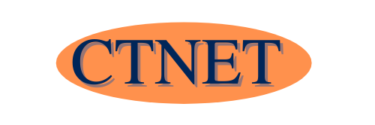In this article, we will explore what Information overload is, and we will look to agree on a standard definition of what information overload is and how we can deal with it.
When I was a child growing up, there was no such thing as Information overload as we were still living in a world where information was relatively scarce, not that it seemed to be that scarce at the time. But you had to set out to find information purposely. The content that existed at that time was pushed towards us, such as television and radio broadcasts, and in the UK at the time, we had three television channels and several radio stations.
I didn’t personally encounter information overload until I started writing this blog. At the time, I didn’t know where I wanted to go with the blog, and I began to grab articles I wanted to read that could lead to potential content ideas for this site. I saved links into OneNote and very quickly became overwhelmed.
Another personal benefit of launching this website and blog is that it encouraged me to start a journey of self-discovery. I started reading more non-fiction, usually on my Kindle, which led to me creating many digital notes. I felt overwhelmed when I started to take my first notes.
What is Information Overload?
In this section, I will define what information overload is and the way information overload can impact our ability to access information and extract knowledge from that information. After all, one of the benefits of accessing information is that we can use it to learn and gain knowledge.
Information overload occurs when we have too much information available to us and don’t know where to start. This indecision could cause you to freeze and procrastinate. It could go as far as making you feel overloaded, which causes stress, impacting your ability to process information further, leading to more stress and creating a harmful feedback loop that affects your health and ability to carry out your work.
The stream of information
A blog post by Mike Caulfield called The Garden and the Stream: A Technopastor used a stream as a metaphor for the flow of information, and this metaphor has stuck with me as information flows in the same way as water down the stream.
Just as drowning can be seen as being overloaded in water, we can also drown in too much information, and when we do, we experience information overload.
The stream metaphor can be taken further to help us find potential solutions. An irrigation system filters away water from a stream to water your plants. Can’t we do the same with a stream of information?
That is the role read-later and note-taking applications are trying to fill, but more than the tools are needed; we need a system. It is a system that allows you to capture the Information and store it in a dam until you can process and plant the knowledge you have refined. We will look at those later in the strategies and systems section.

Strategies and Systems to Manage Information Overloads
The best thing you can do when you feel overwhelmed is to take a break and rest. Nothing ever looks as bad once you have rested.
But we must look at ways to reduce the risk of Information overload for our long-term health. We need to take care of ourselves by being well-rested and looking at implementing a system to manage our information.
Some systems help you manage information and knowledge, and while I will quickly introduce some of those ideas in this blog post, I will also include links to posts I have written about the systems I mention.
The first part of the system we need to look at is how to capture the information that interests us from the stream of information we are exposed to daily.
Information capturing process
The first thing we need to consider is what information we should look to capture. Here are some of the things you might want to consider
- It’s inspiring to you
- Potentially useful for future projects
- Easily lost. Might be difficult to find again
- Personal to you
- You find it intriguing
This list is based on a Tiago Forte YouTube video called How to take digital notes (link to video)
The next thing to consider is the process for capturing the various information, and this section is based on my own experiences of capturing information.
Each place you capture information should be considered an inbox in your system and checked regularly. The concept of inbox is borrowed to get things done. I explore it more deeply in a blog post by David Allen on how I use the Get Things Done mythology, in which I describe how I use the Get Things Done strategy. Since I wrote that post, my systems have changed, but the underlying concepts haven’t.
I use a combination of my paper-based bullet journal or my long form in Obsidian to capture ideas, thoughts and tasks during the day. I also use Readwise and Readwise Reader to capture digital content. These various inboxes are regularly checked. I suggest you read how I use Reader to filter my digital content as I explain my process in depth in that post.
Tiago Forte’s PARA system
The first system I’ll mention is Tiago Forte’s PARA system, in which your notes are stored in a structure dependent on how they fit into your life at that moment.
- Projects for projects you are currently working on
- Area for the various regions of interest in your life
- Resources for the storing of resources you think you might need in the future
- Archive Notes you no longer need as they could be helpful in the future
I see PARA as an Information management system, not a Personal Knowledge management system, as it is purely interested in managing your information.
A Personal Knowledge Management system (PKM) like those we will look at next can sit alongside PARA.
The Zettelkasten method
Zettelkasten is German for slipbox, and as the name suggests, the idea predates digital notes as it was initially designed for storing slips in a box. The original paper-based method allowed similar concepts to be linked together, forming a web of knowledge.
The digital variant gives the same benefit and the benefit of having a process you follow to add permanent notes to the system.
The Zettelkastn system defines three kinds of notes.
- Fleeting notes. The original highlight and note in a book or that idea which came to your mind when having a shower
- Literature notes. Contain details on the source and notes taken from it written in your own words
- Permanent notes. The core of any Zettelkasten system is that each note covers a single idea, thought, or fact in your Zettelkasten. These notes will link to other permanent notes, forming a web of ideas.
You can find out more about the Zettelkasten method in our introductory guide.
The Digital Garden
The concept of a digital garden was put forward as a counterbalance to the constant streaming of information on the Internet.
All digital gardens will have the following in common.
- Each note is atomic and self-contained.
- Notes are contextual based on the links between different related ideas in the digital garden.
- Are constantly changing and evolving
- Are imperfect as the ideas are still forming
- It is personal to you
- Contains information in different media formats
- You own it, and it helps you to share your ideas with others
As I noted in my notes for the digital garden, the concepts are very similar to the Zettelkasten method in the previous section. The digital gardens are less structured and have no concept of different types of notes.
Conclusion
After reading this article, you should know what Information overload is and that it is caused by the fact we are living in an Information golden age. We should be glad about this, as information is the currency of knowledge. The more information we have to process, the more knowledgeable we can become.
We then looked at some ideas that might help us manage the problem of information overload. I ran through some ideas on how you can capture, store and process the information you are interested in and linked to some further reading and resources for those areas.
You can learn more about my productivity and knowledge management system here and find all our content on Personal Knowledge Management systems here.
I would love to know what strategies you use to manage information overload. Please share them in the comments below.
